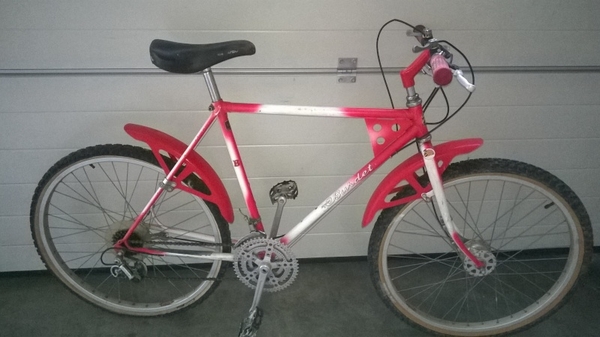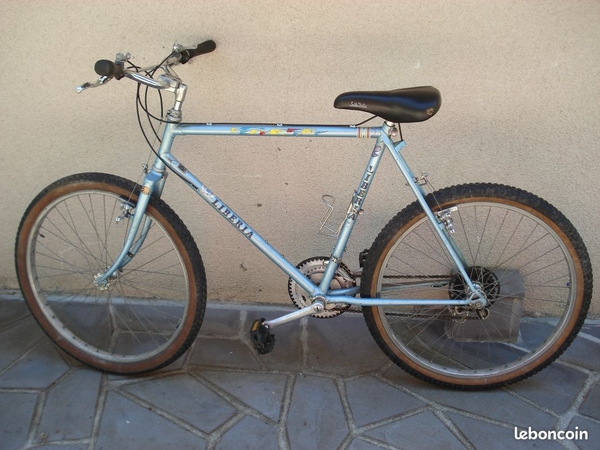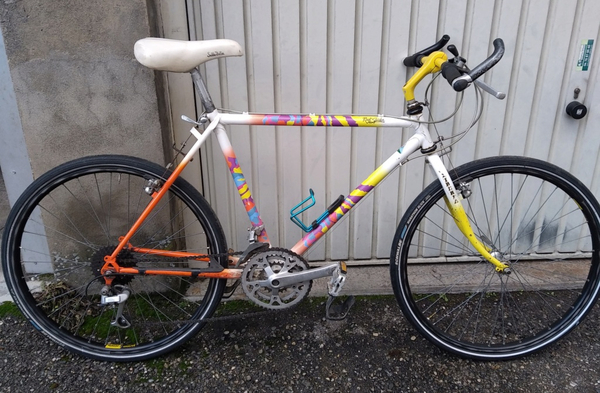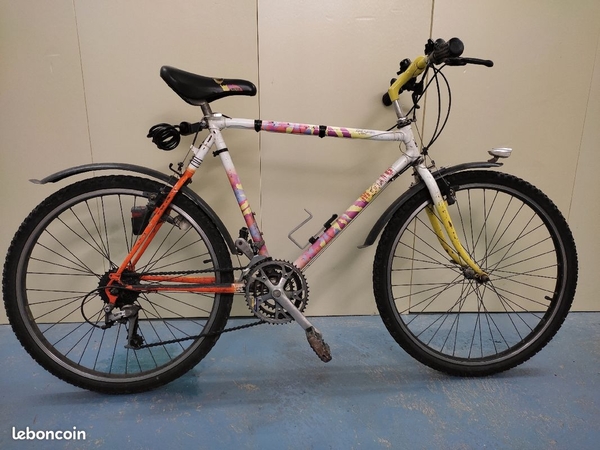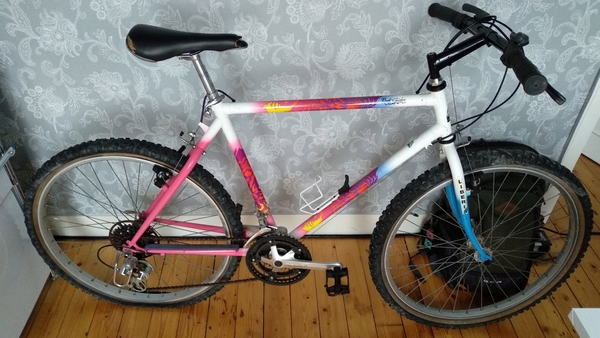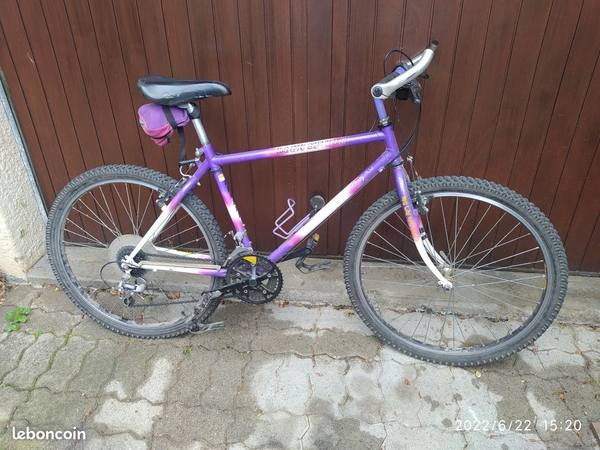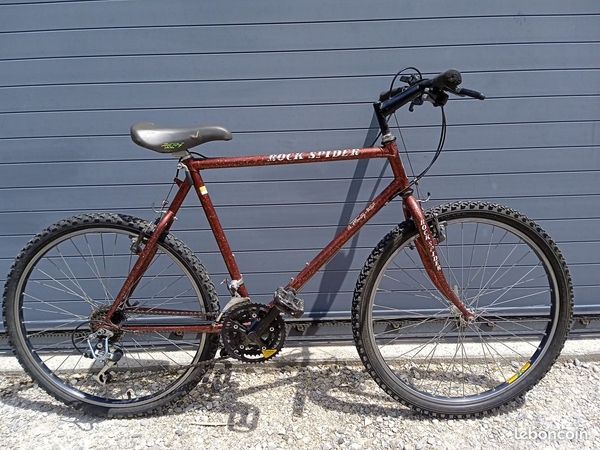Table of Contents
Cycles Libéria
Cycles Libéria1) was founded in 1918 by Antoine Biboud in Vinay, France. Cycles Libéria at first sold only bicycles but soon moved into manfucturing both bicycles and motorcycles.
1978: Gérard Biboud, recently back from the USA, decides to produce mountain bikes which he has seen evolve and which are very fashionable across the Atlantic. The first presentation in France will be at the Paris Motor Show where Ets Liberia will be the first to manufacture and sell Moutain-Bike, VTT (Vélo Tout Terrain) in French. club-ydral
However, by 1978, not a single MTB maker had produced more than ten examples in a single year. The MTB evolution had yet to begin. So, the Liberian dates are, of course, off. At the 1980 Long Beach bike show there were four MTBs on display. 15 by 1981. Perhaps Gérard visited at that point?
In the early 1980s, Liberia was the first French company to manufacture mountain bikes. It will export up to 500 a week to the United States. Cock-a-doodle Doo ! lepostillon
The first??. That would place the Liberia Burdet in 1981, which is very possible given its old components. Peugeot and Motobecane both started making VTTs in 1982. Liberia did not make very many VTTs in its history, as searches for used Velos Liberia return less than 5% VTTs.
Also, who did it export to? Liberia has a very distinctive rear cable hanger, which doesn't show up anywhere else. The Liberia name appears on Tour de France jerseys for 20+ years, most recently in 1992 as part of the RMO cycling team.
The firm dissolved in 1993.
Sources:
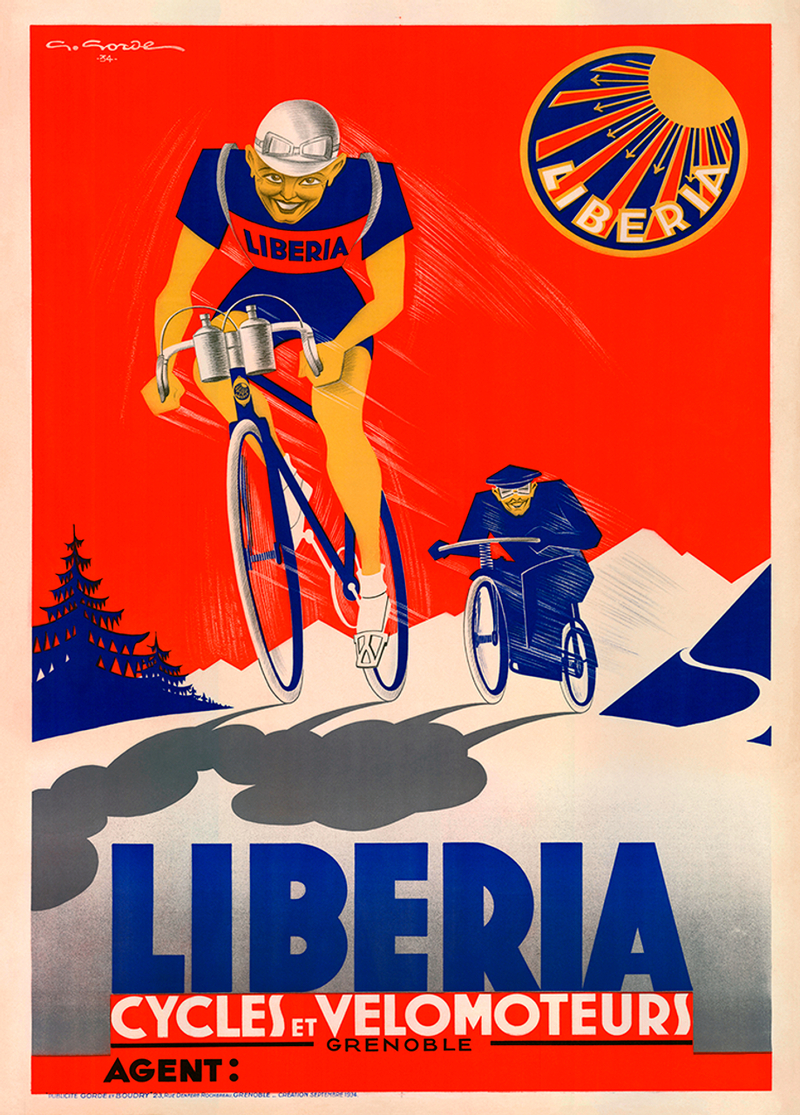
1934 Cycles Liberia poster. A woman (?) being chased by a sinister motorcyclist.
bicyclingart
1982 Burdet
Liberia head badge.
Sachs Huret Rider rear derailleur (1981-83, in this style.)
Sakae Ringyo Apex cranks with a 1979 date code. Pseudo loop-tail rear. Liberia 102 tubing.
Drum brakes front and rear.
Triple shifters.
Internal 2-speed hub gearing mated to a 6-speed freewheel with a triple front crankset. Yielding 36 gears A new record in gear range.
“And the former owner who distributed Liberia, confirmed that it was one of the first mountain bikes of the brand.” velovintageagogo It's possible that this is a 1981.
Upon reflection - and having another look at the drillium chainrings, it seems very unlikely that this was a production model. More of a prototype perhaps, or someone's pet project. The hybrid hub is a Sachs Orbit HT (1980+), which was a rare and pricey option. Great gear range. The Liberia Burdet is a puzzle.
1984
This is a terrible shot and the only component which is clear is the mystery shift lever. Which is unlike anything found on velobase. Mystery golf putter stem with fake bullmoose bars. Interesting straddle cable catchers, which is exceedingly enlightened for the early 1980s. A quick check shows that this is the only bicycle brand in existence with this safety feature at this time. (!!)
2)
All future Liberia models include straddle cable catchers.
A few later French VTTs also adopt this.
This left facing shot is the only missing link between the 1982 Burdet oddity and pretty Rock Spiders which follow.
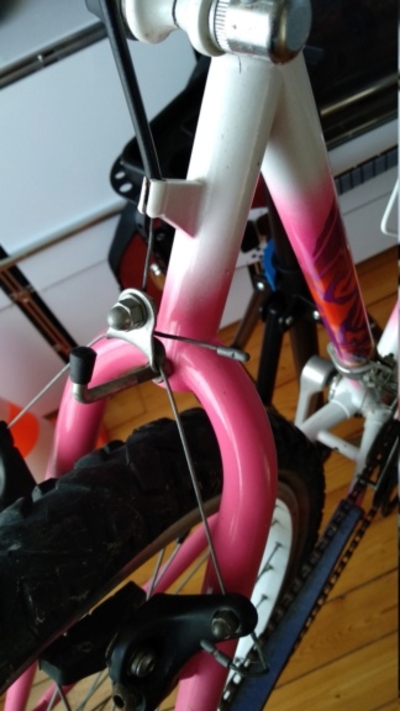 Cable hanger with cable catcher.
Cable hanger with cable catcher.
velovintageagogo
1988 Rock Spider
The new paint scehemes arrive. The Liberia Rock Spider name is very similar to the MBK Rock Fighter, also sold in France at this period. Deore MT60 (1987-88).
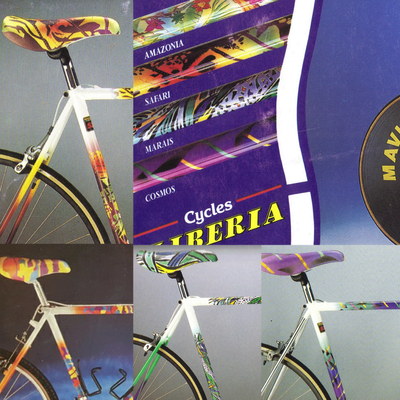 Color samples from the 1990 catalog.
Color samples from the 1990 catalog.
velovintageagogo
1989 Rock Spider
Exage Trail (1988-89).
1990 Rock Spider
Sachs Huret Classic 3000 (1987-90) with 1990 date codes on the front derailleur. Maillard hubs, chainstay protector tabs.
1991 Rock Spider
Shimano Exage 300LX (1990-92) Liberia returns to a more staid and economical color scheme.
1992 Rock Spider
Shimano Altus RD-AT10 (1992-93)
